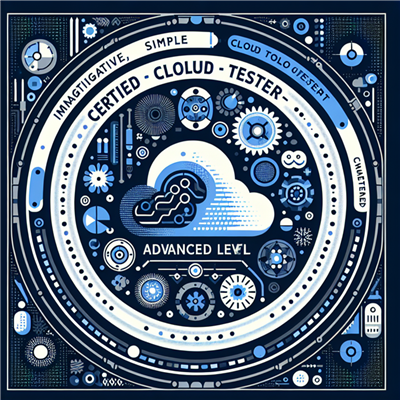.jpgL.jpg)
In the current technological era, the importance and relevance of big data cannot be underestimated. One tool that has been instrumental in managing this vast amount of data is Informatica Big Data Management. This blog aims to provide a comprehensive introduction to Informatica Big Data Management and why it matters in today's data-driven world.
In today’s digital era, the amount of data generated by organizations has grown exponentially. With the rise of social media, mobile technology, IoT, and cloud computing, companies are swimming in a vast ocean of data, commonly referred to as Big Data. Managing, processing, and deriving insights from such large and complex datasets is one of the most significant challenges organizations face. This is where Informatica Big Data Management (BDM) comes into play.
Informatica BDM is a powerful platform designed to simplify big data management and enable businesses to harness the power of their data efficiently. It helps in integrating, transforming, and processing massive datasets, allowing organizations to derive meaningful insights and make informed decisions. In this blog, we'll explore the fundamentals of Informatica Big Data Management, its key features, and why it is crucial for modern enterprises dealing with big data.
What is Informatica Big Data Management?
Informatica Big Data Management (BDM) is a comprehensive solution that enables organizations to manage and process large volumes of structured, semi-structured, and unstructured data across on-premise and cloud environments. It helps in integrating, cleansing, and transforming data while ensuring high performance, scalability, and data quality. Informatica BDM is built to handle the complexities of big data environments by working seamlessly with Hadoop, Apache Spark, and other big data ecosystems.
The platform provides a visual, code-free environment that simplifies the creation of data pipelines for big data workloads. With pushdown optimization, Informatica BDM allows developers to take full advantage of distributed computing frameworks like Hadoop, enabling organizations to process large datasets efficiently and at scale.
Why Does Informatica BDM Matter?
Informatica BDM is more than just a data integration tool. It plays a critical role in the data-driven transformation of businesses. Here's why Informatica Big Data Management is essential for modern enterprises:
1. Handling Big Data Complexity
Big data is not just about volume; it involves dealing with diverse data types, high velocity, and complex processing requirements. Traditional data management tools are often not equipped to handle the complexity of big data environments. Informatica BDM is designed to manage large-scale data pipelines that involve multiple data formats, including structured, semi-structured, and unstructured data.
With support for diverse data types, including JSON, XML, Avro, and more, Informatica BDM ensures that businesses can process data from a wide range of sources, including databases, sensors, social media, and cloud platforms. It provides a unified platform for managing the entire data lifecycle, from ingestion to transformation and analysis.
2. Seamless Integration with Hadoop and Apache Spark
Informatica BDM works seamlessly with big data platforms like Hadoop and Apache Spark, which are the cornerstones of modern big data processing environments. It uses pushdown optimization to offload complex transformations to Hadoop clusters, reducing the load on the Informatica server and speeding up processing.
This integration allows developers to create data pipelines without needing to write extensive code, which is traditionally required for working with Hadoop or Spark. By leveraging the distributed computing power of these platforms, Informatica BDM enables businesses to process massive datasets efficiently, reducing processing time and costs.
3. Visual and Code-Free Development Environment
One of the standout features of Informatica BDM is its visual, drag-and-drop development environment. Unlike traditional big data tools that require in-depth coding knowledge, Informatica BDM enables developers and data engineers to build data pipelines using a code-free interface. This significantly reduces development time and makes big data processing accessible to a broader audience.
The visual interface allows users to design and manage complex data workflows without writing custom code, enabling data teams to focus on solving business problems rather than dealing with technical complexities. This makes it easier for organizations to scale their big data initiatives and bring more agility to their operations.
4. High Scalability and Performance
One of the biggest challenges in managing big data is scalability. As the volume and complexity of data grow, traditional data management tools often struggle to maintain performance. Informatica BDM addresses this challenge by providing pushdown optimization, which allows heavy processing tasks to be executed on distributed big data frameworks like Hadoop and Spark.
This optimization ensures that Informatica BDM can scale as data grows, processing large datasets with minimal impact on performance. It allows businesses to handle everything from batch processing to real-time streaming data with ease, ensuring that they can meet the demands of their data-driven operations.
5. Data Governance and Quality
Informatica BDM doesn’t just focus on integrating and processing data—it also emphasizes data quality and governance. Poor data quality can lead to inaccurate insights, resulting in costly business decisions. With Informatica’s data governance and quality capabilities, businesses can ensure that their big data is clean, accurate, and compliant with industry regulations.
Informatica BDM provides tools for profiling, cleansing, and monitoring data, ensuring that organizations can trust the data they are using for analytics and decision-making. This helps improve business outcomes by ensuring that only high-quality data enters the analytics pipeline.
Key Features of Informatica Big Data Management
Informatica BDM offers a range of features that make it a powerful tool for managing big data. Let’s explore some of its key capabilities:
1. Pushdown Optimization
Pushdown optimization is one of the core features of Informatica BDM, enabling it to delegate heavy processing tasks to the big data platform (such as Hadoop or Spark). By utilizing the distributed computing power of these frameworks, BDM can handle large volumes of data more efficiently, resulting in faster processing times and reduced server load.
2. Dynamic Mapping
Dynamic mapping allows developers to create flexible data pipelines that can adapt to changing data structures and formats. Instead of rebuilding mappings every time a data source changes, dynamic mapping automatically adjusts to accommodate new data types, improving development agility.
3. End-to-End Data Lineage
Informatica BDM provides complete visibility into data lineage, enabling businesses to track the origin, movement, and transformation of their data across various systems. This is critical for maintaining transparency and ensuring compliance with data governance standards.
4. Comprehensive Connectivity
Informatica BDM offers built-in connectors to a wide range of data sources, including relational databases, NoSQL databases, cloud storage platforms, and streaming sources. This enables businesses to integrate data from diverse systems into a single, unified pipeline.
5. Cloud and On-Premise Support
Informatica BDM supports both on-premise and cloud deployments, offering flexibility for organizations that are transitioning to the cloud or managing hybrid environments. It integrates with popular cloud platforms like AWS, Microsoft Azure, and Google Cloud, enabling seamless data integration in the cloud.
Real-World Use Cases for Informatica BDM
1. Financial Services
In financial services, big data plays a crucial role in risk management, fraud detection, and customer analytics. Informatica BDM helps financial institutions process large datasets from multiple sources in real-time, ensuring that they can make accurate, data-driven decisions.
2. Healthcare
In the healthcare industry, the ability to process and analyze large datasets is critical for improving patient outcomes and managing healthcare costs. Informatica BDM enables healthcare providers to integrate and analyze data from electronic health records (EHR), clinical systems, and IoT devices.
3. Retail
Retailers use big data to gain insights into customer behavior, optimize inventory, and personalize marketing campaigns. Informatica BDM helps retailers integrate data from multiple channels, including e-commerce platforms, point-of-sale systems, and social media, to create a unified view of their customers.
The Rising Demand for Informatica Big Data Management Skills
As businesses continue to embrace big data, the demand for professionals with Informatica Big Data Management skills is on the rise. According to a recent survey, 85% of organizations consider data as a strategic asset, and 75% believe that lack of data skills is a roadblock to their success. This underscores the importance of Informatica Big Data Management training.
Informatica Big Data Management Training with Koenig Solutions
As a leading IT training company, Koenig Solutions offers comprehensive Informatica Big Data Management training. Our course is designed to equip you with the skills needed to manage big data effectively and efficiently. With our training, you can gain a competitive edge in the job market and drive your organization's success in the data-driven world.
In conclusion, Informatica Big Data Management is a crucial tool in today's data-centric world. With the right training, you can leverage this tool to drive decision-making and operational efficiency in your organization.







COMMENT